EDUC8731: Study Guide/Workbook on Learning Theories and Processes
VerifiedAdded on 2019/12/28
|40
|4712
|64
Homework Assignment
AI Summary
This assignment is a comprehensive study guide and workbook for the EDUC8731 course, focusing on motivation, cognition, and metacognition in learning. It covers various topics, including an introduction to cognitive psychology, self-beliefs, beliefs about intelligence, short-term and working memory, and long-term memory. The guide includes quizzes, text readings, and activities that prompt students to analyze their own learning processes, such as self-efficacy, goal setting, and memory strategies. Students are asked to define key terms, create diagrams, and reflect on their experiences to apply cognitive theories. The assignment also explores memory models, knowledge representation, and the application of these concepts in educational settings. The guide encourages students to develop their professional language in cognitive psychology and assess their understanding of the material through self-assessment quizzes.
1 out of 40
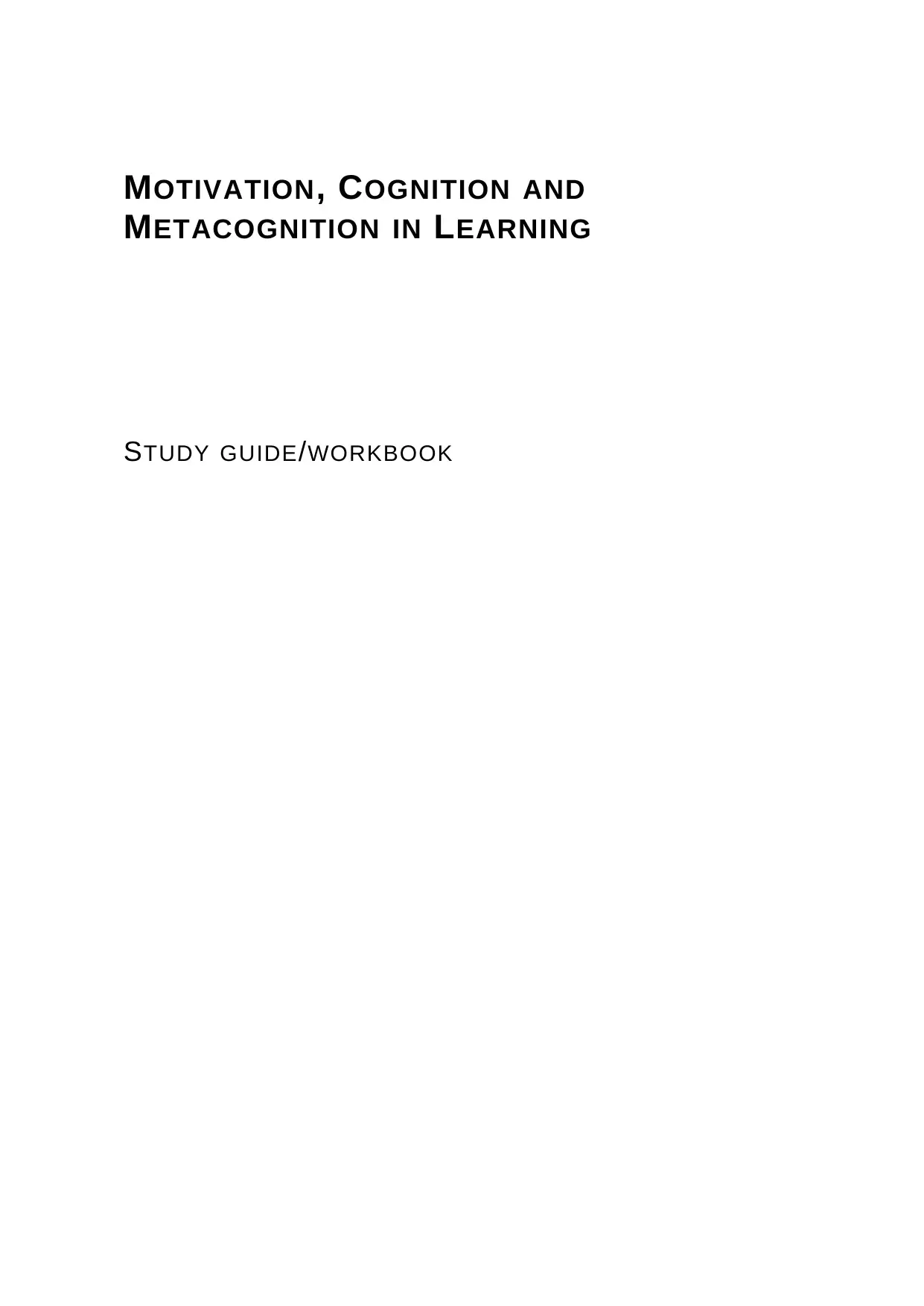

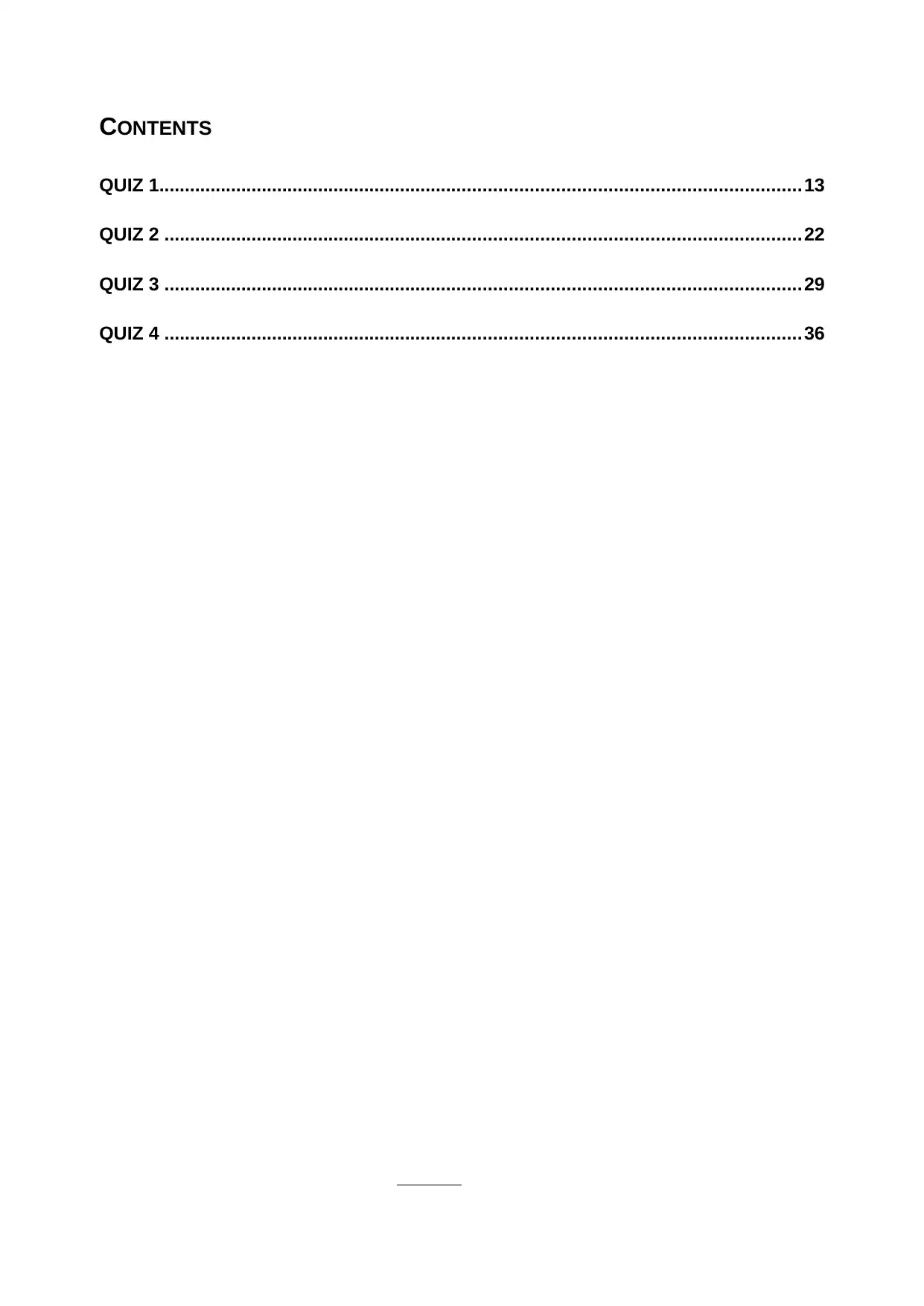

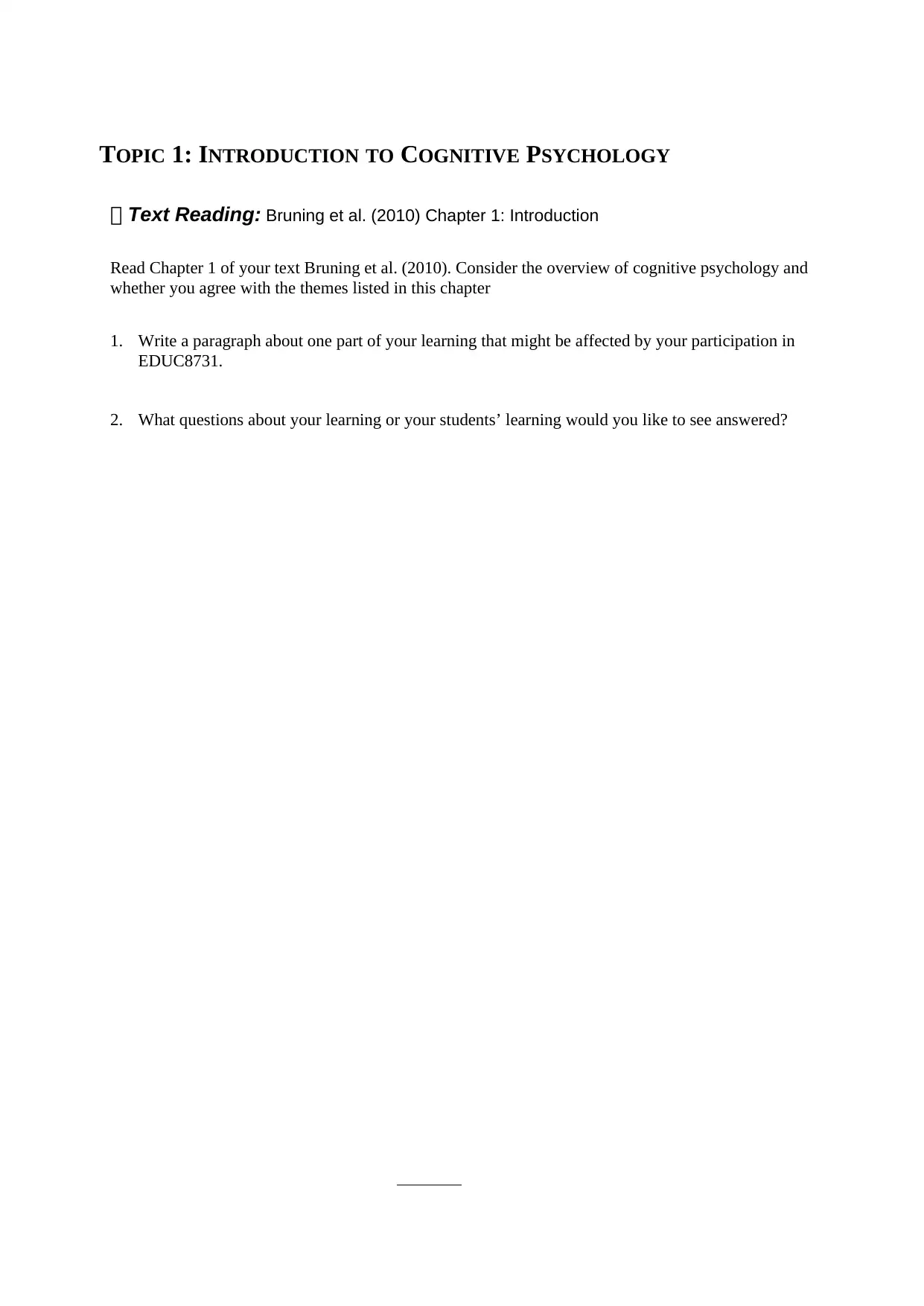
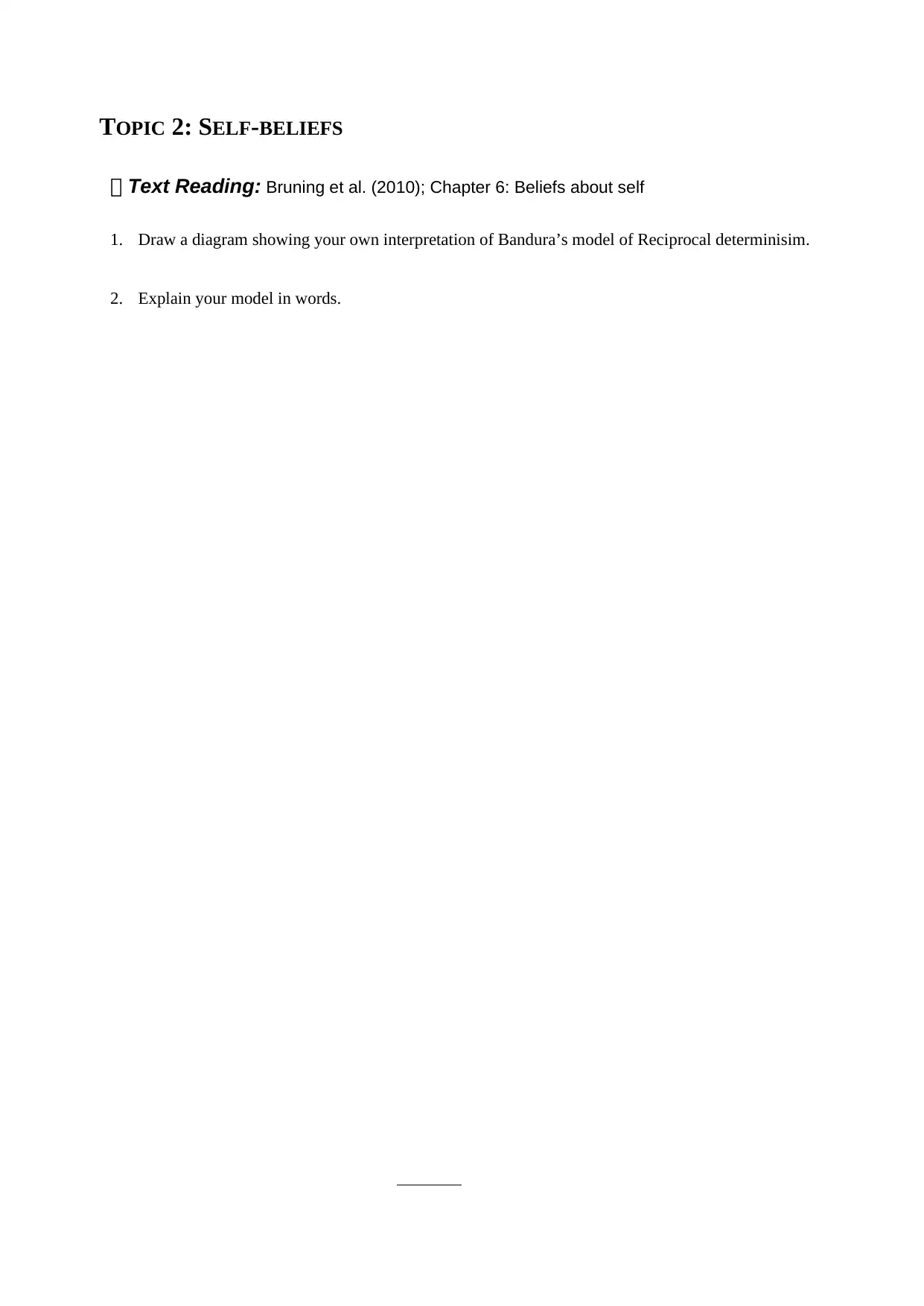
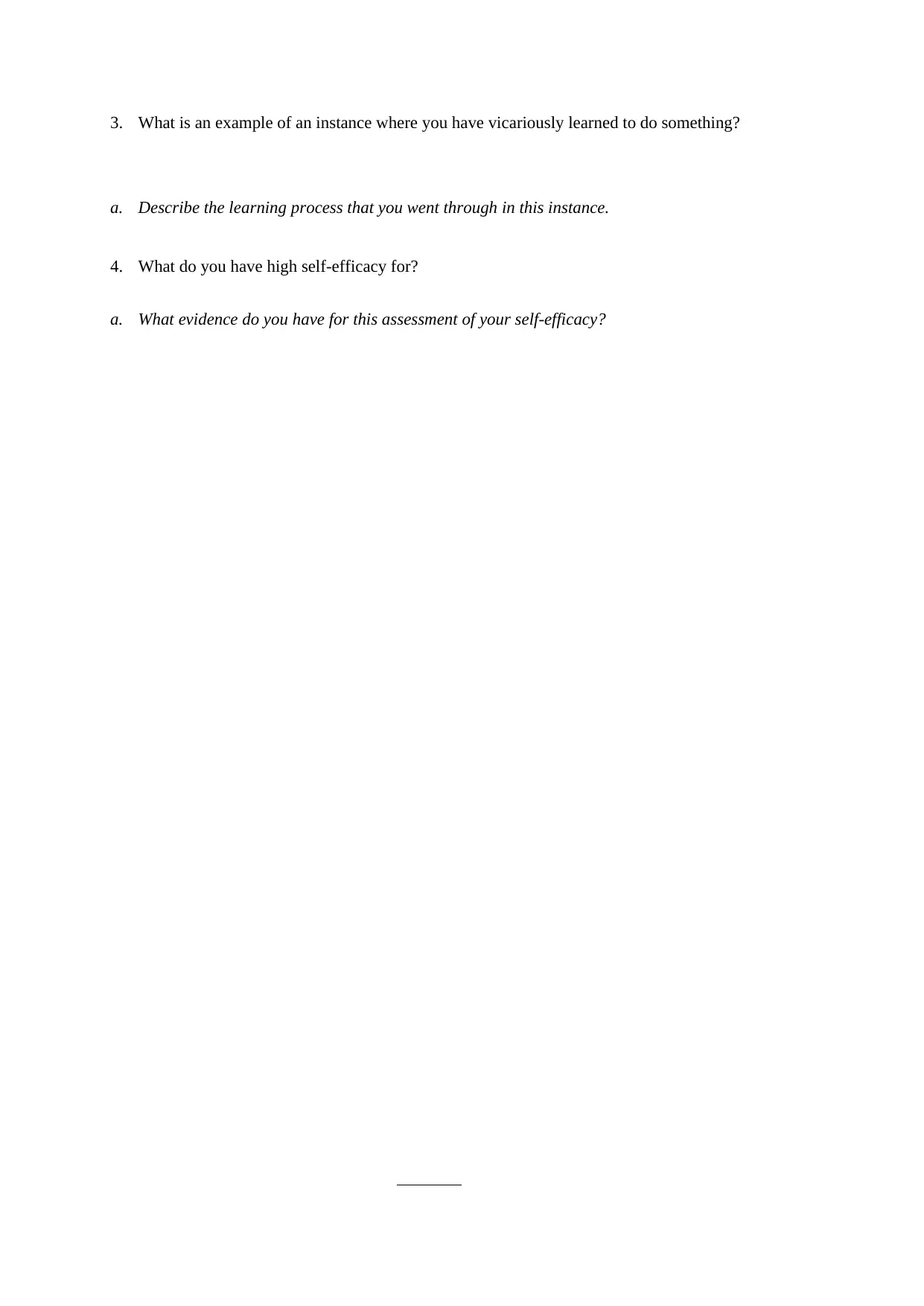
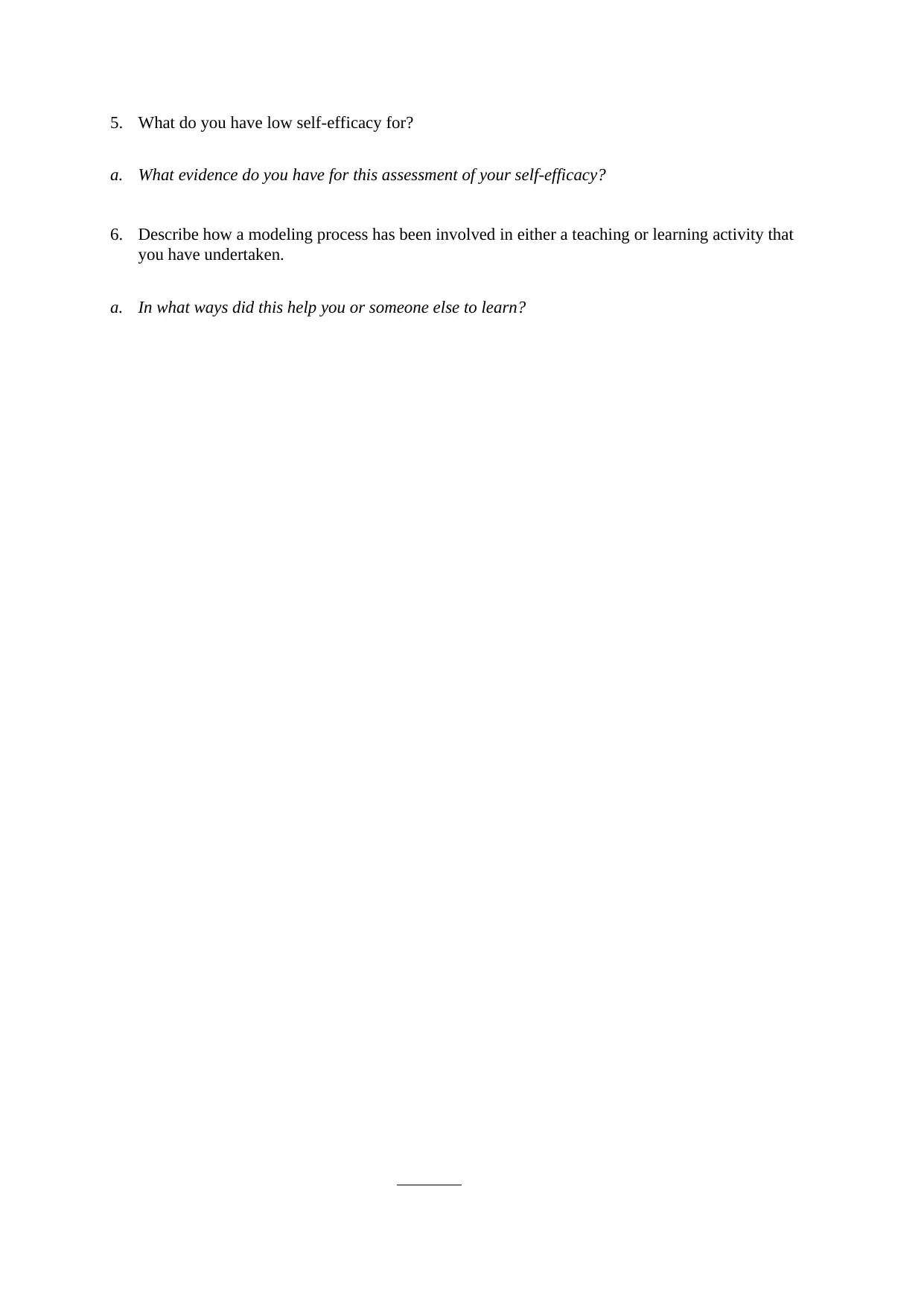
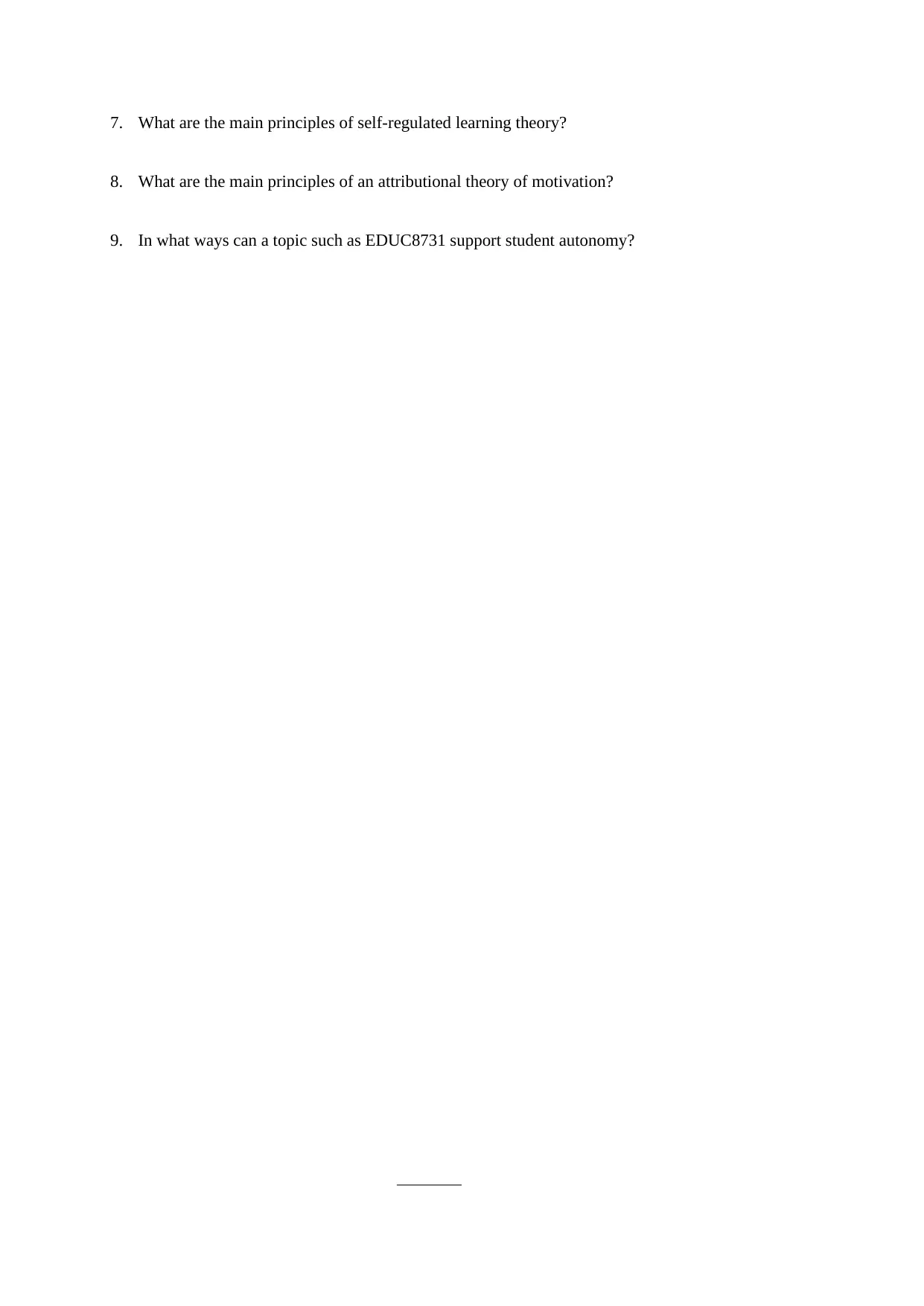
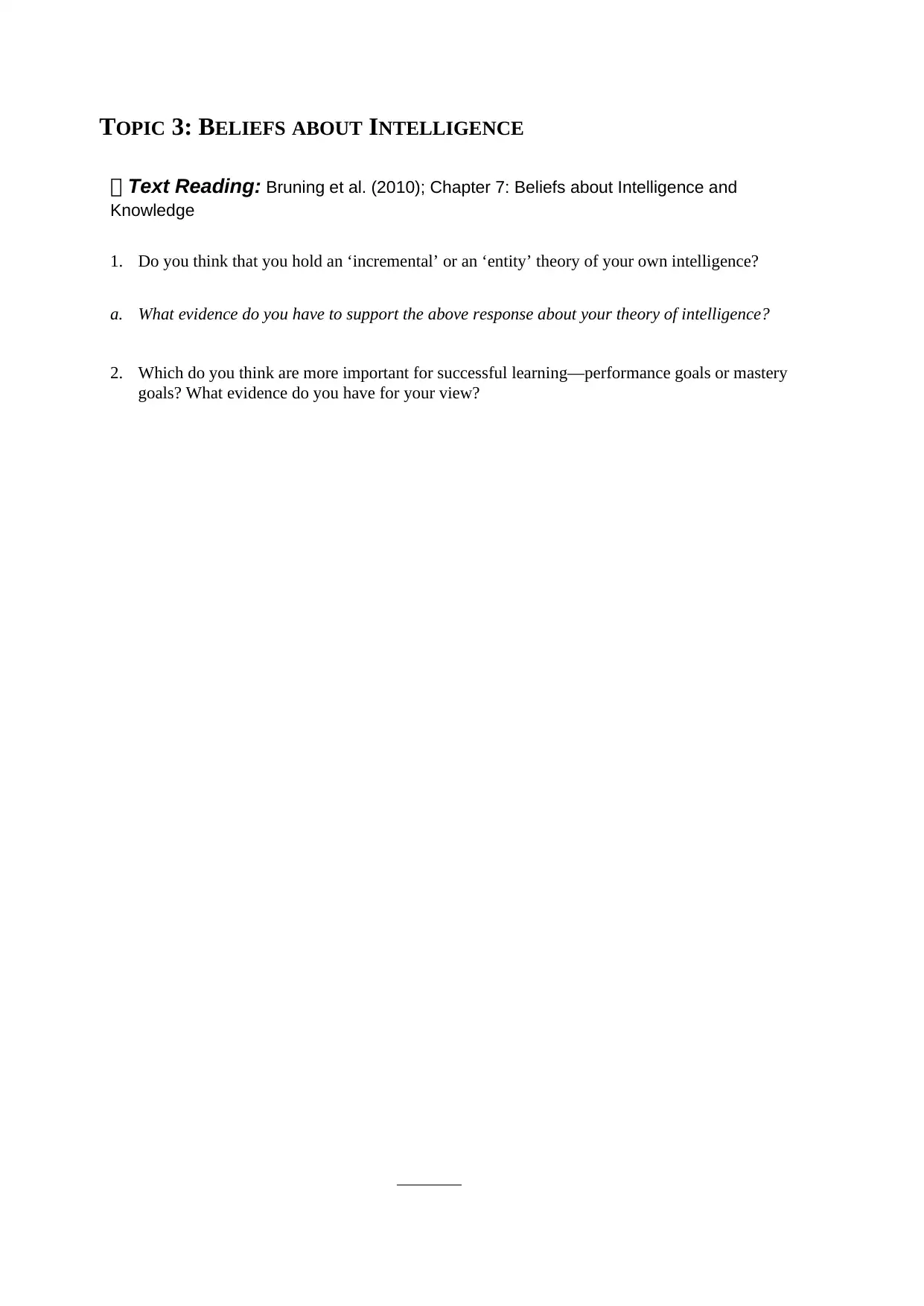
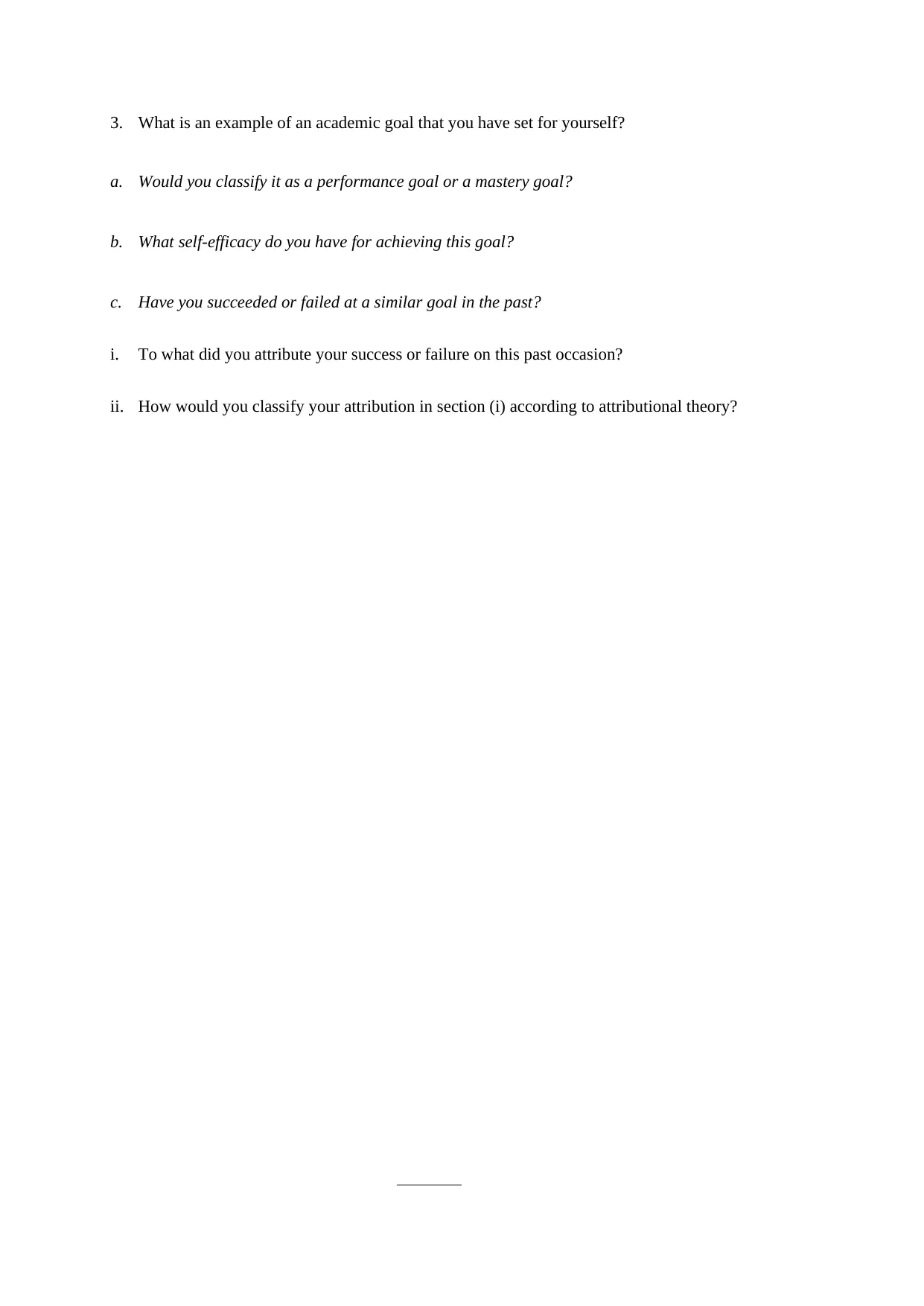
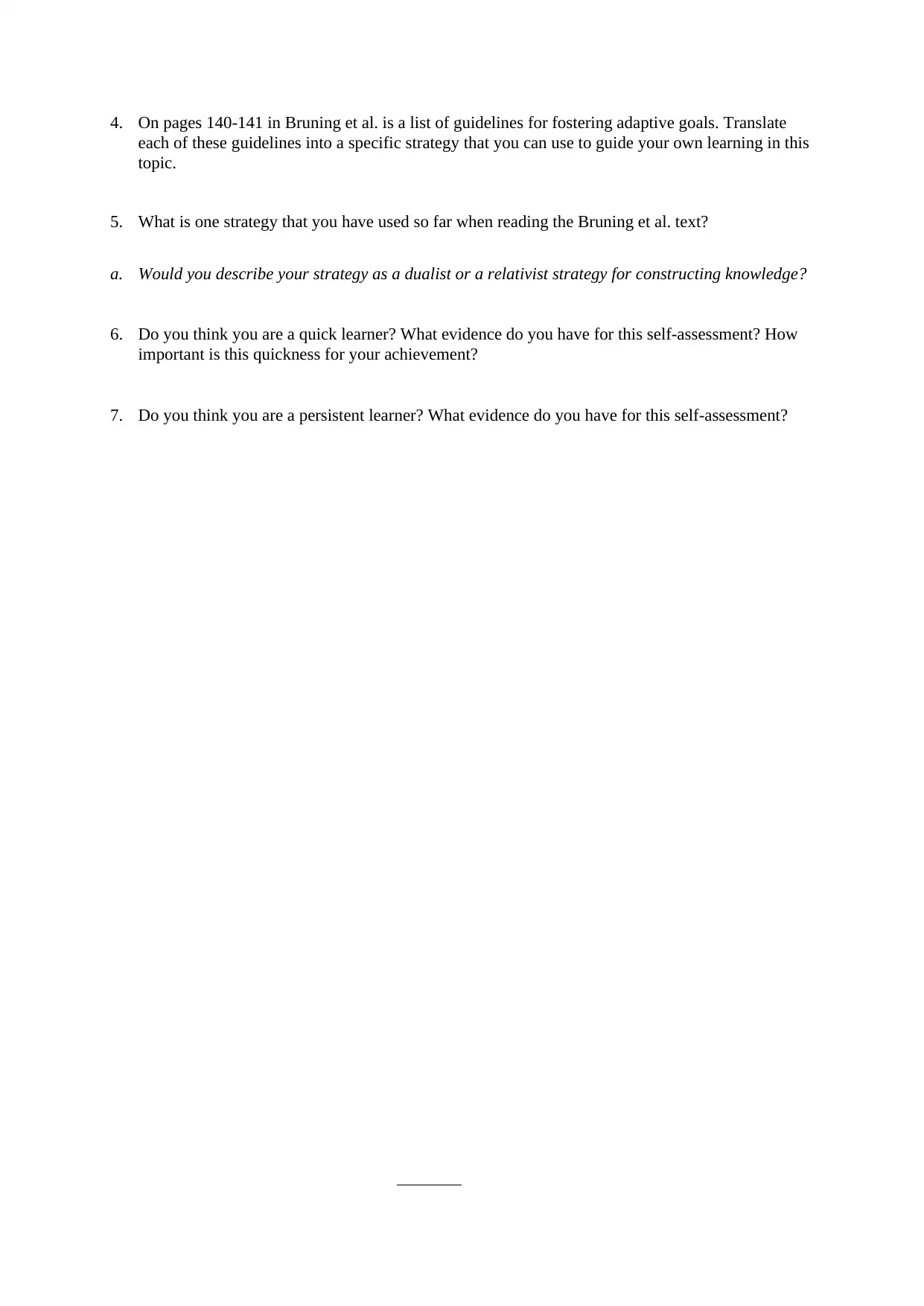
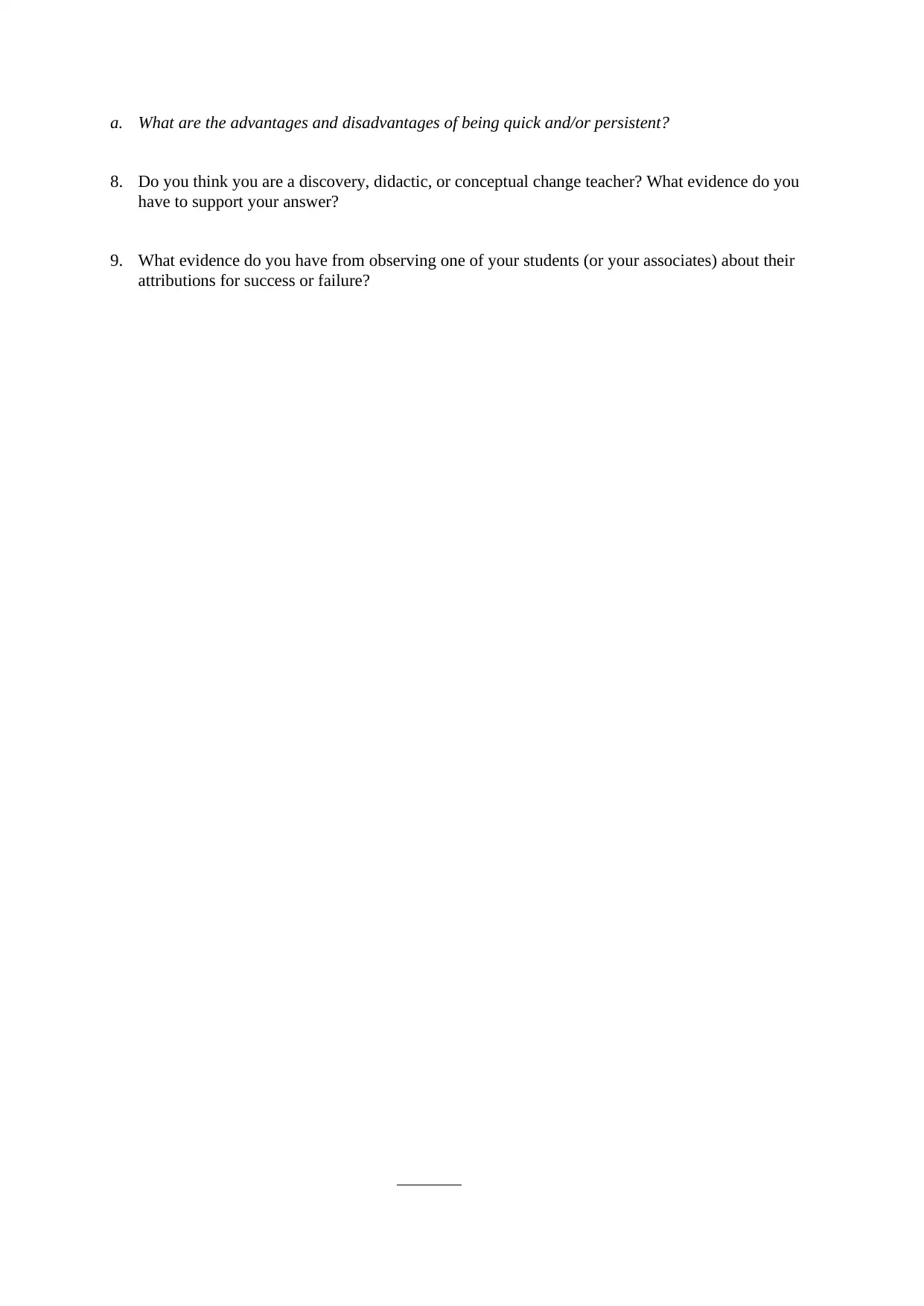






![[object Object]](/_next/static/media/star-bottom.7253800d.svg)